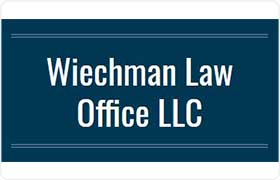Lecompton Bankruptcy & Debt Lawyer, Kansas
Sponsored Law Firm
-
 x
x

Click For More Info:
-
Wiechman Law Office LLC
1101 Sw 10th Ave. Topeka, KS 66604» view mapBankruptcy & Debt Law A Better Way Forward
Our mission is to guide our clients to a better way of life. We are here to listen. We are here to help. We’ll find a solution that fits you and your situation.
800-969-4051
Arturo Alejandro Thompson
Litigation, International Other, Bankruptcy, Bankruptcy & Debt, Lawsuit & Dispute
Status: In Good Standing *Status is reviewed annually. For latest information visit here Licensed: 19 Years
Benjamin M. Wells
Banking & Finance, Litigation, Bankruptcy
Status: In Good Standing *Status is reviewed annually. For latest information visit here
Brandy Leeann Sutton
Real Estate, Collection, Bankruptcy, Bankruptcy & Debt
Status: In Good Standing *Status is reviewed annually. For latest information visit here
Brenda Bell
Real Estate, Divorce & Family Law, Criminal, Bankruptcy & Debt
Status: In Good Standing *Status is reviewed annually. For latest information visit here Licensed: 37 Years
Brett Allen Sitts
Consumer Protection, Business & Trade, Commercial Bankruptcy, Personal Injury
Status: In Good Standing *Status is reviewed annually. For latest information visit here
Catherine Cupp Theisen
Bankruptcy, Employee Rights, State Appellate Practice, Litigation, Landlord-Tenant
Status: In Good Standing *Status is reviewed annually. For latest information visit here
Christopher Freeman Burger
Bankruptcy, Divorce, Lawsuit & Dispute, Real Estate
Status: In Good Standing *Status is reviewed annually. For latest information visit here
Christopher R. Coons
Bankruptcy & Debt
Status: In Good Standing *Status is reviewed annually. For latest information visit here Licensed: 26 Years
Daniel L. Watkins
Corporate, Business, Bankruptcy
Status: In Good Standing *Status is reviewed annually. For latest information visit here
Darryl Graves
Landlord-Tenant, Real Estate, Estate, Bankruptcy & Debt, Business
Status: In Good Standing *Status is reviewed annually. For latest information visit here Licensed: 50 Years
 Kerry Gasper Topeka, KS
Kerry Gasper Topeka, KS